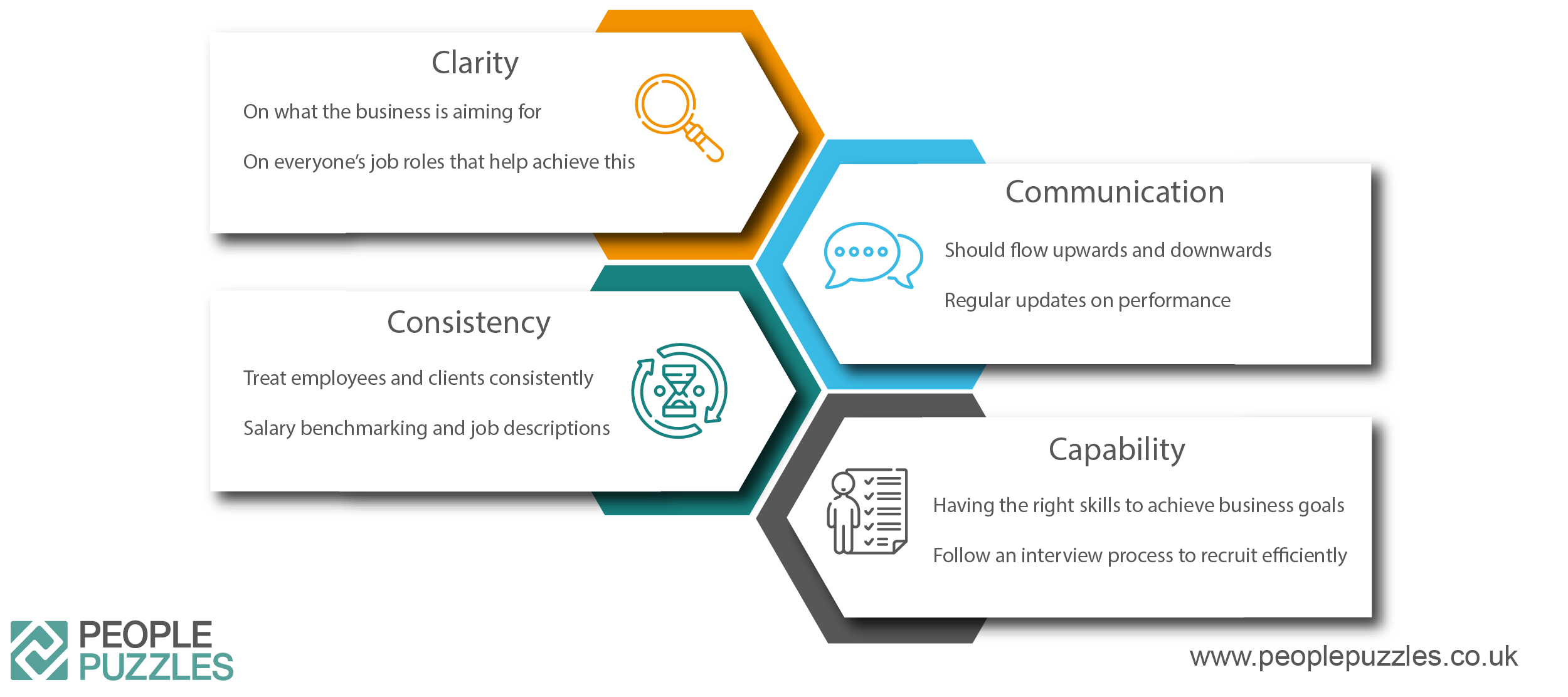Achieving a high-performance culture
A high-performance culture means focusing on your value-added activities and getting rid of what isn’t adding value. The most successful companies I’ve worked with have been the ones that sought out new opportunities – and been fleet of foot when markets change. I’ve seen businesses move from £5m turnover to £15m because they did exactly that.
So how do you create a high-performance culture and motivate your employees? I believe it’s essential to have the following fundamental elements in place:

Clarity
It’s vital that you, your staff and your clients are absolutely clear on what you are trying to achieve. Have benchmarks to measure how well you are doing. Is your business plan still fit for purpose or do you need to change or do things differently? It’s important that everyone knows what’s expected of them and what their role is in achieving the business goals.
Communication
Communication isn’t just one way – it should flow upwards as well as downwards. Daily updates – a bullet point sheet, can help you keep abreast of your key performance indicators (KPIs). Choose your metrics carefully; if you’re driven by sales, measure those. If you’re a supplier, measure how many units are supplied etc. This can feed into a weekly dashboard and/or a monthly report to help keep you in the loop with what’s going on.
Consistency
To get the best out of the people in the business, it’s important that they all feel valued. Do you treat employees equally across the business and do you treat customers and clients consistently? Establishing salary benchmarking and job descriptions go a long way to achieve consistency among your staff, and will also help when you want to recruit.
Once you have these fundamentals fully embedded, you’ll be in a position to be able to pivot quickly, rise to new challenges and grow the business.
Capability
Another ‘c’ to think about is capability. Do you have the skills you need in order to achieve your business goals? If not, you’ll need to either develop them in your staff or recruit them in. If you have a recruitment strategy baked into the business plan, your managers will know exactly when to recruit rather than it being a last-minute rush to fill a gap. Having proper interview processes in place will also help recruitment run efficiently.
One more thing to remember is that as businesses grow, things at the top have to change. Business owners cannot afford to spend 80% of their time out of the business and 20% in like they might have done as a start-up. If anything, those figures should be reversed. But if you get those fundamentals in place: Clarity, Communication and Consistency – and grow your capability – you’ll get that space out of the business to not only seek out the new opportunities but rise to the new challenges they’ll bring.
If you would like help in creating a high-performance culture within your business that helps add value at every step and supports business growth, get in touch on 0203 239 3307 or email [email protected]

John Smith, People Director

